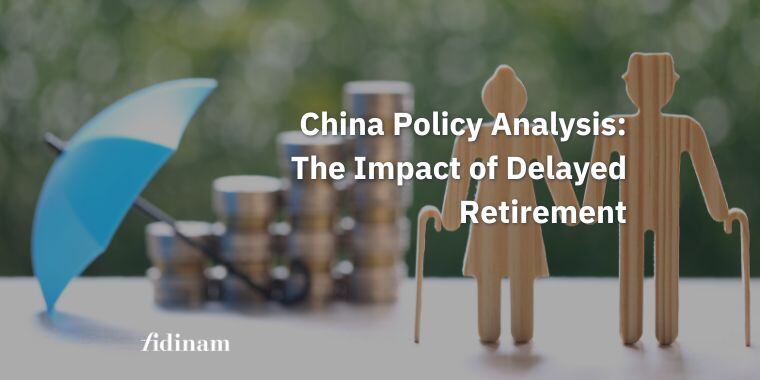
On 13 September 2024, the Standing Committee of the National People's Congress approved the "Decision on the Implementation of the Gradual Delay of the Statutory Retirement Age." This policy will take effect on 1 January 2025. It is set to significantly influence employee welfare, retirement planning, and corporate management.
In this article, we draw on Fidinam’s previous analysis of the adjustment to Shanghai's social security base and delayed retirement to further interpret the new retirement age delay policy and offer practical strategies for businesses.
| Policy Aspect | Current Policy | New Policy |
| Retirement age | Male retire at 60, female employees at 50, female officials at 55 |
Male will gradually retire at 63, female employees at 55, and female officials at 58 |
| Flexible retirement | No flexible retirement option | Flexible retirement introduced, allowing up to 3 years of early or late retirement |
| Pension contribution years | Minimum 15 years | Extended to minimum 20 years, starting from 2030 |
The Gradual Delay of the Statutory Retirement Age is a key reform aimed at addressing China's ageing population, optimizing the workforce, and fostering sustainable socio-economic development. The policy will be implemented incrementally from 2025, with the full adjustment to retirement age expected within 15 years.
While the delay helps ease pressure on the national pension system, businesses will need to re-evaluate their pension contributions, particularly small and medium-sized enterprises (SMEs), which should prepare transition strategies for a smooth shift.
Delayed retirement will extend the careers of skilled employees but may impact promotion pathways for younger employees. Companies should refine their promotion systems to balance the needs of different age groups.
The introduction of flexible retirement offers businesses greater leeway in workforce planning. Companies can craft retirement schemes that align with both their operational needs and employees' career plans, enhancing HR management efficiency.
By leveraging the experience of countries like Germany and the US, businesses can adapt their work environments and provide professional development to ensure that employees remain competitive throughout longer careers.
To manage the effects of the retirement age delay, businesses need to make strategic adjustments across several areas:
With longer working years, companies must reassess their pay structures to ensure the contributions of senior employees are properly rewarded, whilst encouraging sustained performance.
An increase in the number of senior employees will drive up costs related to healthcare and insurance. HR departments should adopt detailed management practices to control labor costs and maintain competitiveness.
The policy change may complicate employee relations. Providing clear retirement plans and managing expectations will help mitigate potential disputes.
To improve productivity and comfort for older employees, companies should invest in age-appropriate workplace facilities and offer flexible work arrangements.
To support both older and younger employees, companies need to adapt their promotion paths, offering diverse career development opportunities to prevent talent loss.
The gradual implementation of the delayed retirement policy presents both challenges and opportunities for corporate HR management. Through careful planning and strategic adjustments, businesses can maintain flexibility and competitiveness during this transition.
Fidinam stands ready to offer professional support, ensuring that your business and employees thrive under these new regulations.
As a leading provider of Human Resource management and corporate consultancy services, Fidinam is ready to support businesses in adapting to the retirement age delay:
Retirement Scheme Design and Implementation: Fidinam can assist companies in creating retirement schemes that comply with the new policy and meet employee needs, ensuring a smooth transition.
Salary and Performance Optimization: We offer in-depth salary and performance analysis to help businesses maintain cost control while motivating employees to stay productive.
Employee Relations and Compliance Audits: Fidinam can help review employment contracts and policies to ensure full compliance with the retirement delay, minimizing legal risks during the transition.
HR Strategy and Planning: Our HR consultancy services can help companies optimize their organizational structures to stay competitive in the face of retirement age delays.
All content © . All Rights Reserved.